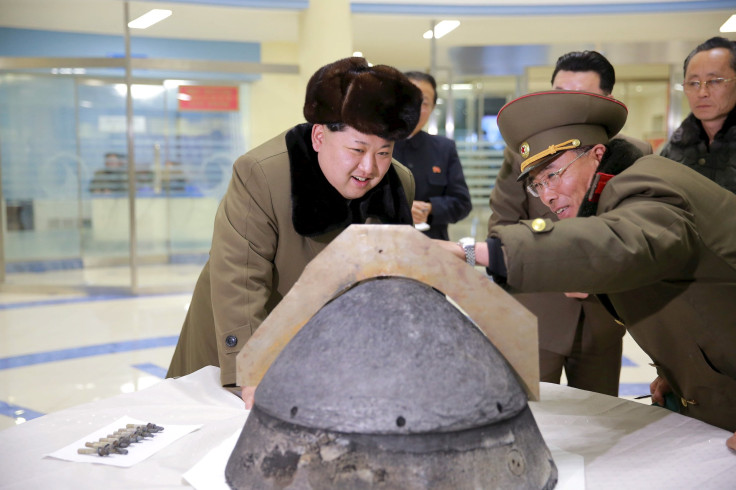North Korea Warns US Of Attacks On Pacific Bases After Washington Deploys Strategic Bombers In Guam

North Korea hit out Wednesday at the U.S. for deploying strategic bombers at the Andersen Air Force Base in Guam — closer to the reclusive state — earlier this month. Pyongyang also warned that the U.S. military bases in the Pacific region will face “ruin” if Washington “goes reckless.”
The United States replaced the B-52 bombers with the B-1s that arrived at the base on Aug. 6. On Aug. 9, the U.S. deployed three B-2 stealth bombers at the base as tensions remained high in the Korean Peninsula, given the North’s recent missile and nuclear tests despite strict sanctions from the United Nations.
“The introduction of the nuclear strategic bombers to Guam by the U.S. ... proves that the U.S. plan for a preemptive nuclear strike at the DPRK [Democratic People’s Republic of Korea] has entered a reckless phase of implementation,” a spokesman for North Korea’s foreign ministry said, according to state-run Korean Central News Agency (KCNA).
“Such military moves by the U.S. are part of its sinister strategy to contain Russia and China in the Asia-Pacific and maintain its military hegemony in the region, not just aiming at a surprise preemptive nuclear strike at the DPRK,” the foreign ministry added.
The Kim Jong Un-led country also stated that its army and citizens will not remain onlookers and they will retaliate against any U.S. provocation.
“If the U.S. is reckless, misjudging the trend of the times and the strategic position of the DPRK, all the U.S. military bases in the operational theatre in the Pacific including Guam will face ruin in the face of all-out and substantial attack to be mounted by the army of the DPRK,” the ministry cautioned.
In June, North Korea tested its fifth and sixth intermediate-range ballistic missiles drawing condemnation from the U.S., South Korea and Japan. The U.N. Security Council called for the renewed enforcement of sanctions imposed after the reclusive country’s fourth nuclear test earlier this year.
In May, North Korean foreign ministry had accused the U.S. of continuing its “hostile acts” against the reclusive country and pushing it to strengthen its nuclear deterrence against Washington. The foreign ministry said that the country “will continue taking a series of steps for bolstering up the nuclear deterrent for self-defense both in quality and quantity to cope with the ever-escalating U.S. hostile acts against the former.”
© Copyright IBTimes 2024. All rights reserved.






















